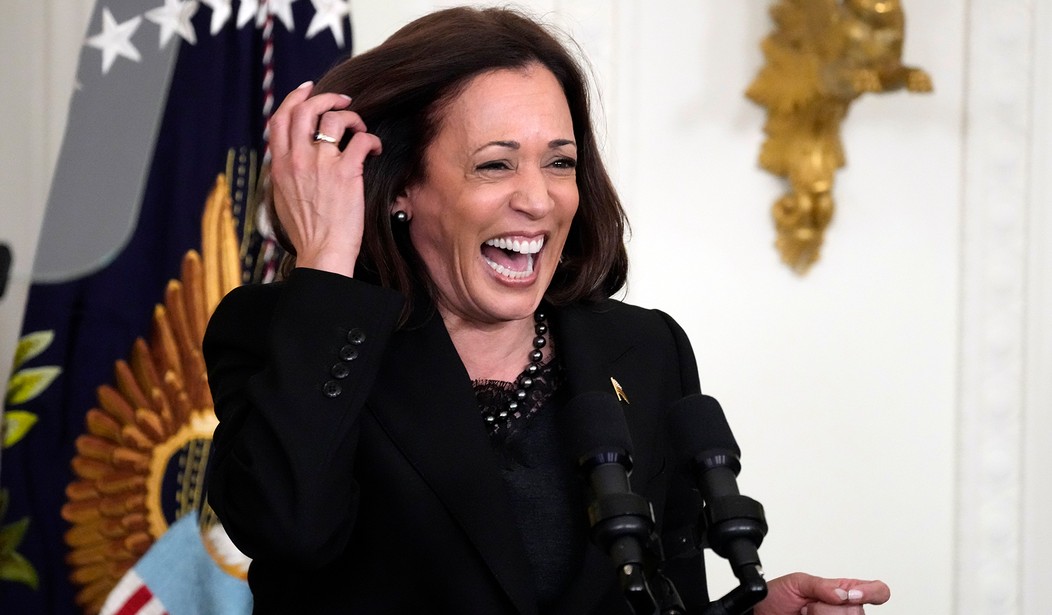Kamala Harris has been a big part of Joe Biden's anti-gun machinations since he was sworn in as president in 2021, but her own opposition to the Second Amendment has been on display for well over a decade.
On today's Bearing Arms' Cam & Co I had the chance to talk with Gun Owners of California executive director Sam Paredes about Harris's time as San Francisco District Attorney and California's Attorney General... including her defense of Washington, D.C.'s ban on handguns that was struck down by the Supreme Court in Heller.
Harris's name was on an amicus brief submitted to the Supreme Court by a group of district attorneys arguing that the city's ban should be upheld; not only as one of the interested parties, but as one of the authors of the brief itself. The district attorneys argued that none of the challenged ordinances in the District violated the Second Amendment, which means Harris took the position that a complete ban on handgun sales and possession was constitutionally sound, as well as requiring those few gun owners who were grandfathered in and allowed to maintain possession of their guns to store them disassembled and locked up with the ammunition stored separately.
The District Attorneys respectfully submit that the three D.C. Code provisions at issue in this appeal do not violate the Second Amendment, thus necessitating a reversal of the lower court’s decision. The District Attorneys do not focus on the reasons for the reversal, however, leaving these arguments to Petitioners andother amici. Instead, the District Attorneys urge the Court to consider the potentially negative, unintended, and wholly unnecessary consequences of an affirming opinion. In short, an affirmance could inadvertently call into question the well settled Second Amendment principles under which countless state and local criminal firearms laws have been upheld by courts nationwide.
For nearly seventy years, courts have consistently sustained criminal firearms laws against Second Amendment challenges by holding that, inter alia,(i) the Second Amendment provides only a militia-related right to bear arms, (ii) the Second Amendment does not apply to legislation passed by state or local governments,and (iii) the restrictions bear a reasonable relationship to protecting public safety and thus do not violate a personal constitutional right. The lower court’s decision, however, creates a broad private right to possess any firearm that is a “lineal descendant” of a founding era weapon and that is in “common use” with a “military application” today. Under this vague standard, a vast range of criminal laws nationwide, including laws where possession of a firearm is an element of an offense, could be subject to a new round of constitutional challenges. As detailed below, regardless of their outcome, these challenges could create substantial uncertainty in the lower courts and strain the already slim resources of the courts and the criminal justice system. Significantly, while the courts struggle to determine the scope and application of the Second Amendment, prosecutors could be hindered in their ability to enforce criminal laws they have long understood to be valid and compromised in their continuing efforts to combat gun violence in their communities.
In other words, Harris took the position that the Second Amendment does not protect an individual right to keep and bear arms; instead deeming it a right created by the courts. She fretted about the effects of the Supreme Court affirming the lower court decision that found D.C.'s ordinances unconstitutional, with no concern whatsoever about the residents of Washington, D.C. and their ability to protect themselves in their homes from violent offenders.
At the same time, however, Paredes says that Harris was surrounding herself with a squad of armed police officers to provide her with security. As Paredes noted, that extensive security extended to her time in the U.S. Senate, when she was inexplicably protected by members of the Los Angeles Police Department even when she was nowhere near L.A.
Armed, plain-clothes LAPD officers were dispatched to California cities outside of Los Angeles at least a dozen times to provide security for U.S. Sen. Kamala Harris at public events, media appearances, and a party.
LA taxpayers paid for airline tickets, hotel stays, car rentals, and meals, according to detailed expense reports obtained by NBC News. The total cost of the trips, not including the officers' overtime, topped $28,000.
The LAPD routinely provides security for dignitaries and officials visiting LA, but a senior retired department official said the courtesy extended to Sen. Harris for her travels to other cities was unprecedented.
Mayor Eric Garcetti's office said the Mayor was, "unaware," of this unusual arrangement until July, when it was shut down by new LAPD Chief Michel Moore.
"It was not until Chief Moore was sworn in, conducted a new assessment of the threat, determined that this arrangement was no longer needed, and informed Mayor Garcetti, that the mayor became aware of the state-wide detail," Garcetti spokesman Alex Comisar wrote in an email Wednesday.
At the time, Harris's press flack stated that her office "did not request or question LAPD's decision to provide protection", but that doesn't explain how the LAPD would have been aware of Harris's trips to Oakland, San Diego, and other California cities, much less assign officers to tag along and provide security.
Harris is far from the only anti-gun politician to surround herself with armed guards while demanding the rest of us be disarmed in the name of public safety, but she's the only one running for president who's taken that position. And with Arizona senator and Giffords co-founder Mark Kelly emerging as one of the favorites to serve as Harris's running mate, the Democrats may end up fielding a ticket that's even more hostile to the Second Amendment than Biden/Harris has been.








Join the conversation as a VIP Member